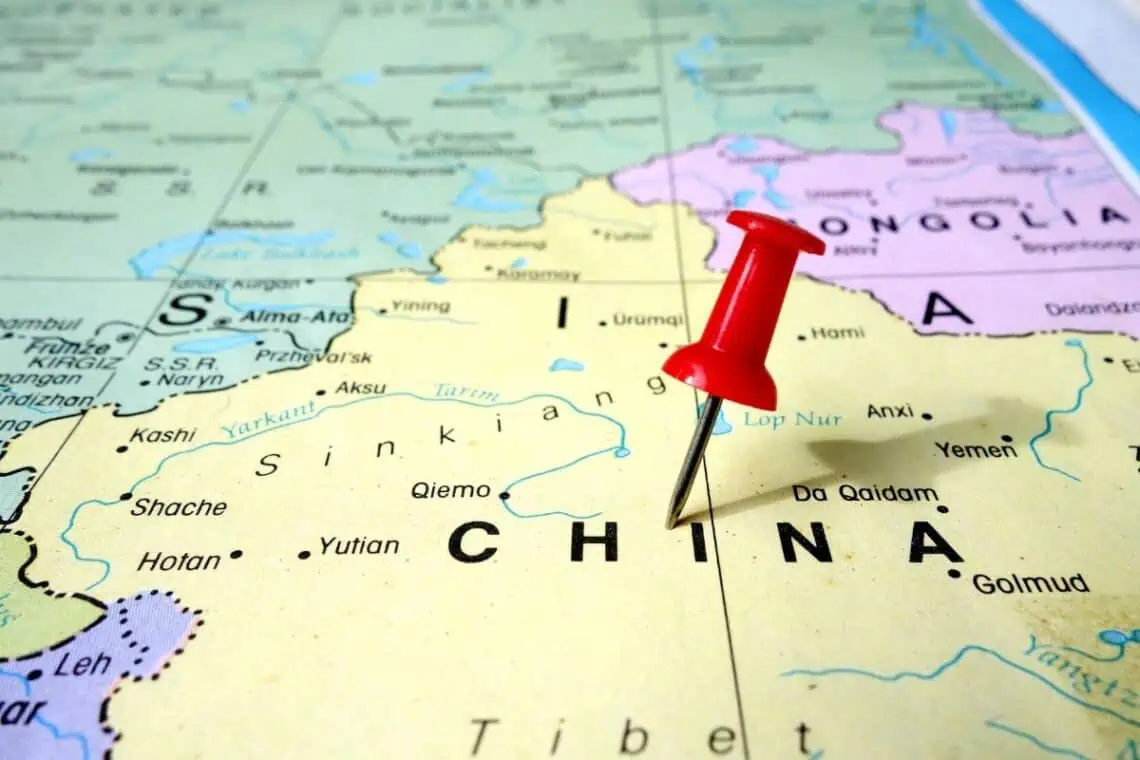China is an incredible and vibrant country, full of opportunity and culture. If you’re a business traveler headed to the Far East, there are many things you should consider before embarking on your journey.
From obtaining the necessary visas and work permits to preparing for language barriers, here are some tips to ensure that your trip runs smoothly and safely.
Obtain Necessary Visas and Work Permits Before Traveling to China
If you are planning to do any kind of work in China during your stay (which includes taking part in meetings), then you will need to obtain both a visa and a work permit. The type of visa required will depend on how long your stay is going to be—for example if it is less than six months then a tourist visa may be sufficient; however if it is longer than six months then a business visa or student visa may be required.

In addition, depending on the nature of your job or project, additional permits or approval from relevant government departments may also be necessary. The application process can take several weeks so make sure you give yourself plenty of time.
Learn About the Local Culture and Customs
No matter where you travel, it’s always important to learn about the local culture and customs before arriving in a new location, especially one steeped in tradition and respect like China is. The culture in China is vastly different than that of many Western countries, so it’s important to learn about local customs before your trip. This can help avoid any potential misunderstandings or cultural faux pas which could potentially cause offense or embarrassment.
In China, this means understanding “guanxi” – the Chinese concept defining relationships based on mutual obligations and favors – as well as being aware of certain taboos around topics such as religion or politics that may offend locals if discussed openly.
The better equipped you are with cultural knowledge, the better your experience abroad will be!
Prepare for Language Barriers
The Chinese people place great importance on respecting their customs and traditions—so it’s wise to do some research into local customs before visiting. Learning about how to greet people properly (along with other etiquette rules) will go a long way in helping you feel more comfortable in any unfamiliar environment.
China has many different dialects spoken throughout various regions within its borders; however Mandarin Chinese is widely understood by most people in the country so it would be wise to brush up on your Mandarin before visiting China.

It can also be helpful learn a few key phrases such as “thank you” or “I don’t understand” which will come in handy if needed during conversations with locals or while out at dinner with colleagues or potential partners. Be sure to download a translation app to help!
Also, having some written Mandarin translations of important documents may come in handy if needed as well as could help break through potential communication barriers during meetings or negotiations.
Arrange Accommodations & Transportation
Making sure that your accommodation arrangements are sorted ahead of time can save lots of hassle when traveling abroad for business purposes.
Depending on the length of stay, it may be possible to find budget accommodation options such as hostels or AirBnB rentals that offer good value for money; alternatively if staying for longer periods an apartment rental might be more cost effective.
When it comes to transportation options, it pays dividends to check out public transport routes including buses and trains as these can often be cheaper than taking taxis everywhere; plus if you plan ahead then booking tickets online can save even more money!
Document Authentication
China is one of the few countries that require foreign companies to get their documents authenticated by the Chinese Embassy or Consulate General before submitting them for business purposes. This process involves preparing a notarized copy of each document, along with a Chinese translation, and then having it stamped with an official seal from the embassy or consulate.
This process can be time consuming and costly so it pays to plan ahead; make sure you allow enough time for the authentication process as delays could impact any deadlines that need to be met.
The Chinese document authentication process in China is overseen by the Chinese Embassy or Consulate in the country where the document was issued.
Familiarize Yourself with Local Laws and Regulations
Another essential tip for business travelers heading to China is familiarizing yourself with local laws and regulations for everyday life before arriving in the country. This will help ensure that you don’t unknowingly break any laws or regulations during your stay.
For instance, in China access to much of what is considered to be “western” or US based internet sites are blocked and there are restrictions on what information can be shared online—including photos and videos.
If you rely on Gmail or any Google based app, be aware that you will not be able to access these while in China. You may want to set yourself up a Yahoo account at bare minimum and thoroughly research the apps you use and depend on to make sure they will be functional during your stay.
Make Time to Explore!
Finally, make sure you have some time to explore the sights and sounds of China.
From the Forbidden City in Beijing to the terracotta warriors in Xian, there are so many amazing things to see and do throughout this vast country that it would be a shame not to take advantage of these once-in-a-lifetime opportunities to visit some of the country’s most iconic landmarks.

Don’t forget to try out some of China’s delicious local cuisine—it is one of the best ways to experience the culture!
Whether you are a seasoned business traveler or a first-timer, taking the time to properly prepare for visiting China can make your trip more comfortable, safe and enjoyable. Following the tips above can help ensure that you have an amazing experience in this stunning country!
Good luck on your trip to China for business and enjoy your stay! Happy traveling!